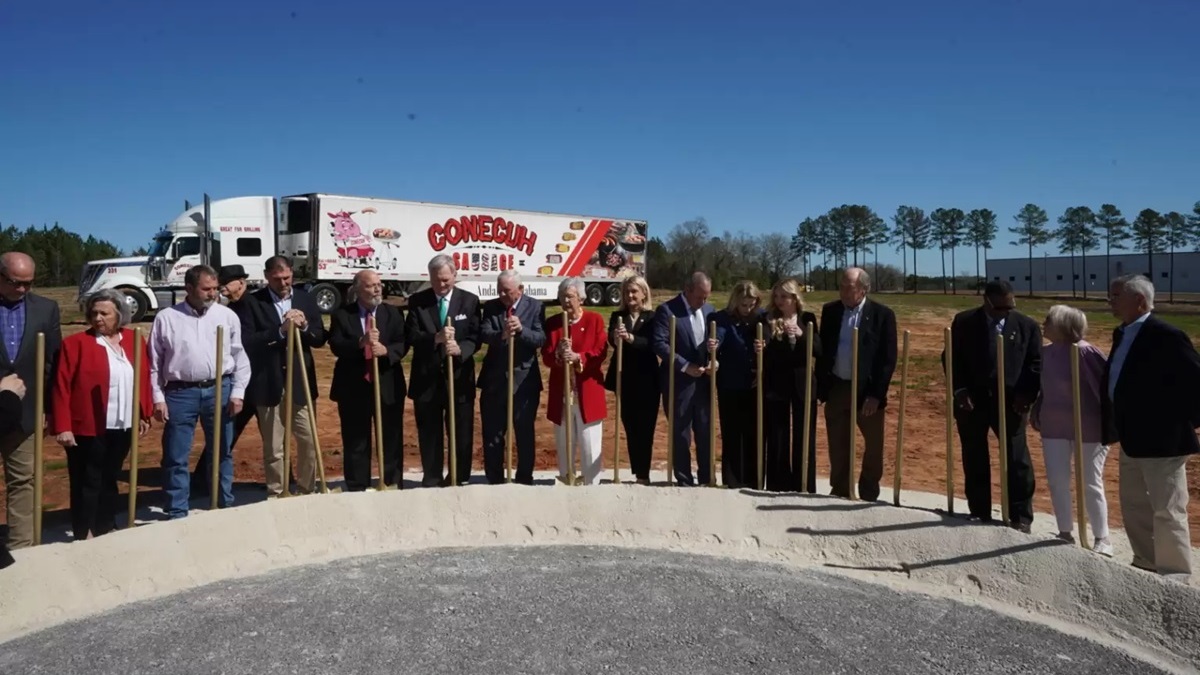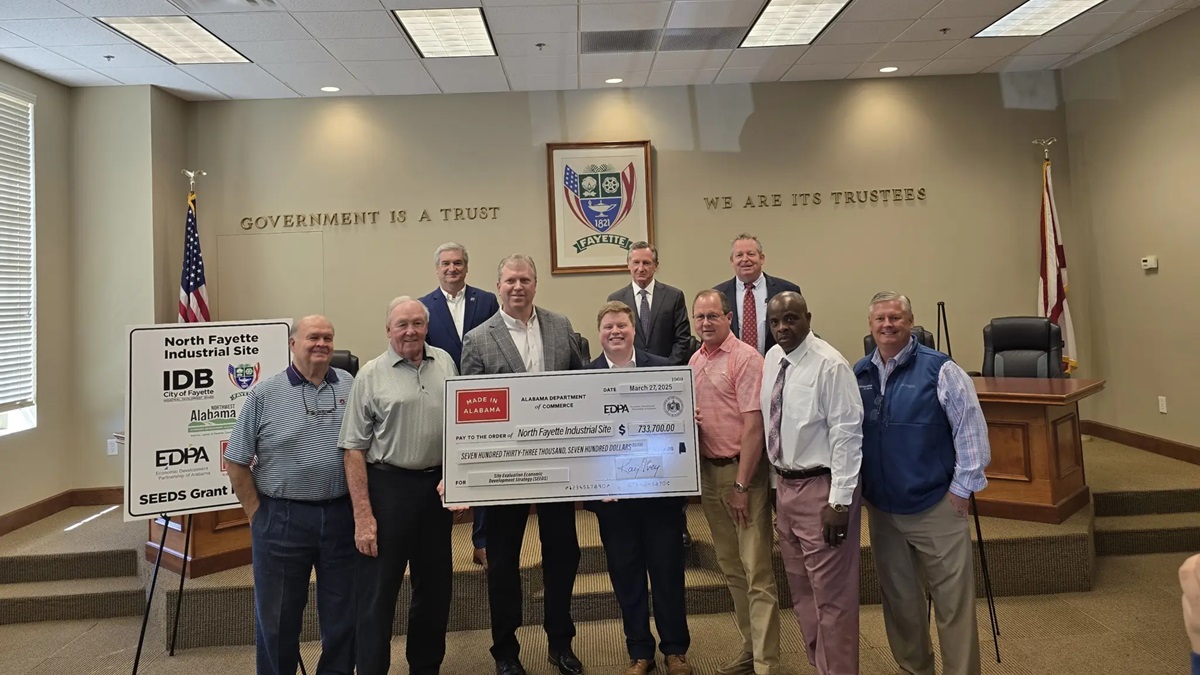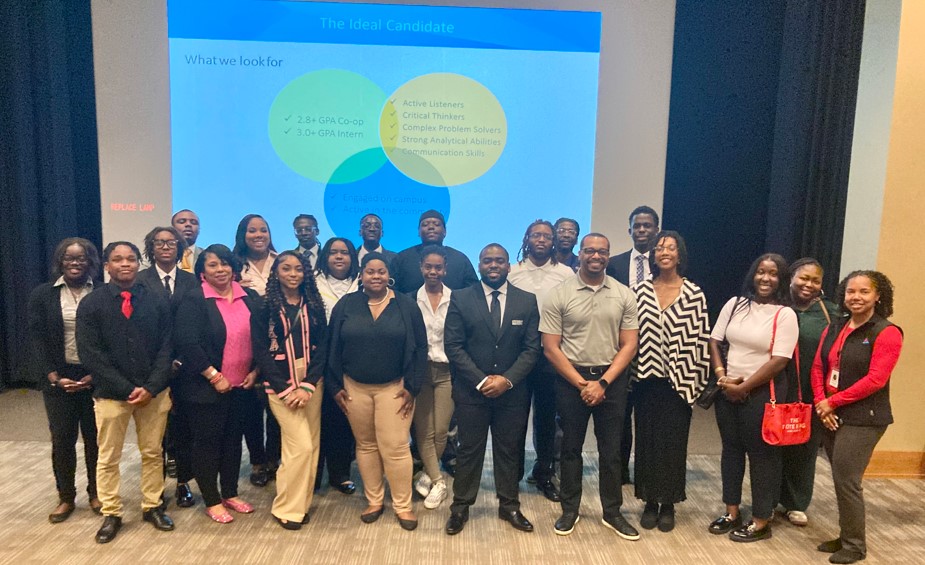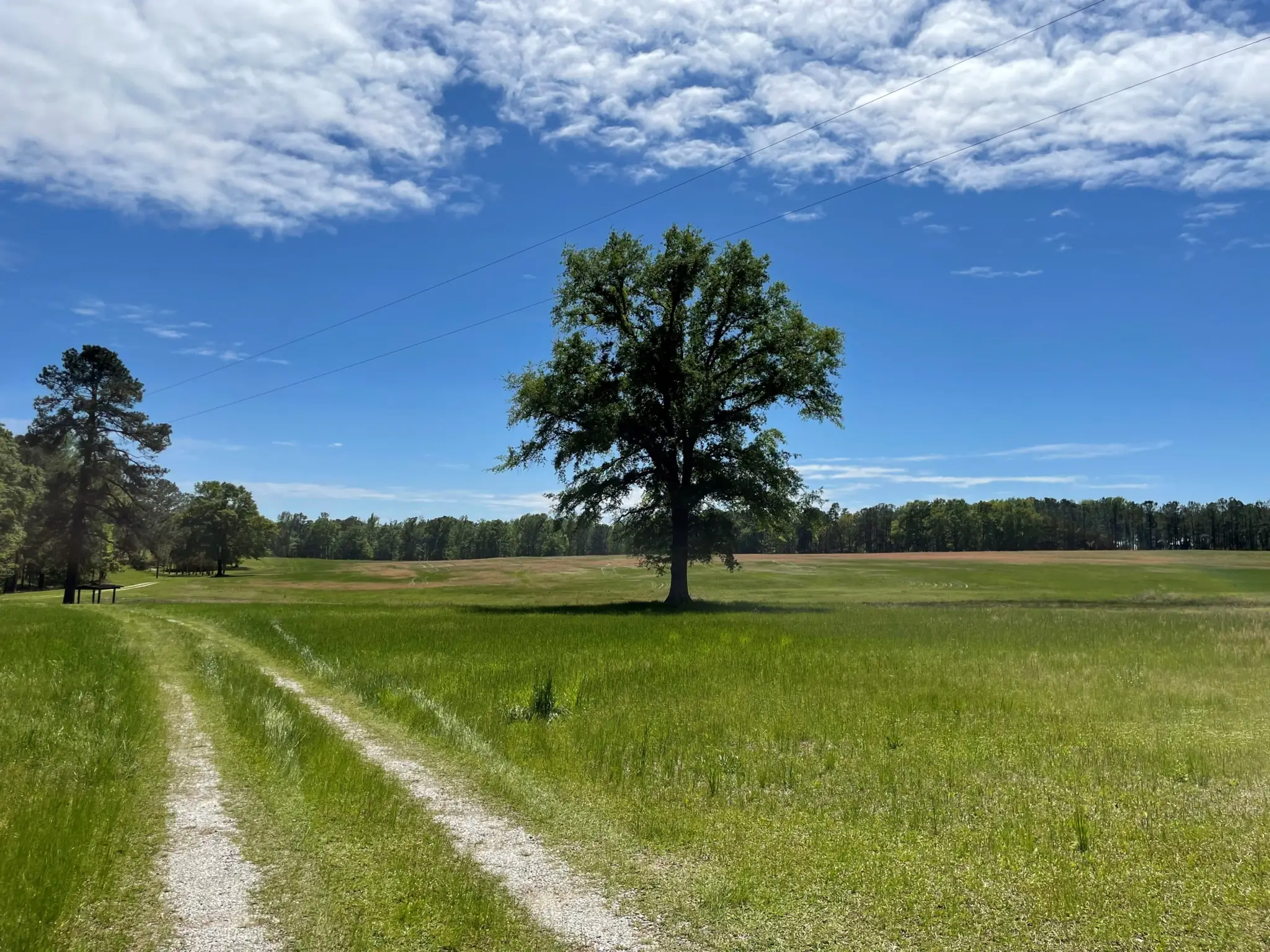Workforce development efforts flying high in southwest Alabama
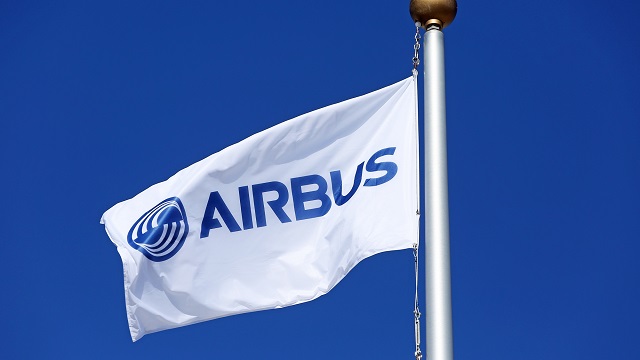
Airbus is conducting more hiring for its new assembly plant in Mobile. (Mike Kittrell/Alabama NewsCenter)
A crucial recommendation made Tuesday to Gov. Robert Bentley by the Alabama Workforce Council is already in play across southwest Alabama.
The 52-page report – compiled by a 40-member advisory panel and chaired by Zeke Smith, executive vice president of Alabama Power – includes among its key tenets “realigning the state’s regional workforce development councils with the efforts of local community colleges to better meet the workforce needs of local business.”
[ Read more about the report here. ]
The Southwest Alabama Workforce Development Council is no stranger to strategic partnerships, but the continuity of established aviation recruitment and retention practices appeared in limbo when the Alabama Community College System announced in late 2015 that Faulkner State Community College would take over Alabama Aviation Center operations from Enterprise State Community College.
Located at Mobile Aeroplex at Brookley, the Alabama Aviation Center offers the state’s only aviation maintenance program, including both airframe and powerplant training as well as dual enrollment programs for high school students in both Mobile and Baldwin counties. The Mobile campus was established in 1976 as a satellite facility for ESCC’s original aviation center in Ozark in the southeastern corner of the state.
The ongoing realignment of the state’s two-year colleges focuses on streamlining the services available at roughly 25 community and technical schools spread across more than 80 locations statewide.
Regional focus

Airbus will complete its first Alabama-made passenger jet in 2016.
(Mike Kittrell/Alabama NewsCenter)
Patty Hughston, Faulkner State’s dean of workforce development and technology, said the steps being taken now are intended to reshape the availability of programs targeted to specific geographic workforce needs; boost efficiency by eliminating duplication; increase cost-effectiveness; and better serve the evolving needs of employers.
The more regional approach, she said, necessitates Faulkner State taking the training reins in Mobile and the eight-county region serviced by SAWDC, the ninth of 10 regional workforce development councils operating across the state. The southwest council acts as a liaison between industry and employees – both potential and incumbent – in Baldwin, Choctaw, Clarke, Conecuh, Escambia, Mobile, Monroe and Washington counties.
In light of the structural shuffle, Hughston – alongside Chester Vrocher, executive director of special projects for the Alabama Community College System – briefed members of SAWDC’s Aviation and Industry Advisory Council in late January on the steps being taken to ensure not only that the sector receives the curriculum alignment its employers require to recruit top-notch talent but that Mobile remains the “hub” of resource allocation despite concerted efforts to expand the sector’s reach farther into the regional council’s seven other counties.
‘Offering it better’
In addition to assuming control of Alabama Aviation Center and its satellite facility in Fairhope – a transition slated to be finalized by the fall 2016 semester – Faulkner State is also taking over Reid State Technical College in Evergreen, Alabama Southern Community College in Monroeville and Jefferson Davis Community College in Atmore.
“This region is the first really to take this step,” she told the aviation advisory council, formed nearly three years ago to more efficiently identify and address skills gaps while working proactively to meet evolving workforce development needs in the rapidly expanding aviation sector.
And while there has been “lots of talk about expansion for training in aviation” statewide, Hughston said Faulkner State is already eyeing increased investment at Brookley operating as the regional “hub” while also exploring the possibility of future investments in a new Atmore facility and possibly one as far north as Monroeville.
“Mobile is still the hub of workforce in this region, and (Mobile) is absolutely the No. 1 focus for aviation,…It really is about growth, expansion, offering it more and offering it better,” Hughston said.
Brookley boom
Vrocher confirmed Faulkner State has been “seriously looking at expansion of space here on Brookley for this facility” and said they have already met with the Mobile Airport Authority regarding the availability of additional space.
“We will hit capacity here and we need to have a space solution, so we’re working on that,” he said.
Although enrollment at the Alabama Aviation Center ballooned to about 220 students immediately following Airbus’ selection of Mobile for its first A320 family aircraft final assembly line on U.S. soil, the training facility’s new director, Jim Pickard, said enrollment has since decreased to pre-announcement levels, hovering just below 200 students at a facility that can accommodate 300.
[ Read more on Airbus’ Mobile grand opening here. ]
Other potential investments on the table currently include:
- An additional aviation training center in the Atmore area, tied possibly to the existing Jefferson Davis campus off Interstate-65. Initial discussions indicate a $12 million investment could be warranted, but Hughston called both the design and cost “conceptual at this point.”
- Use of available Alabama Southern space for an aviation facility because the 80,000-square-foot Monroeville facility currently offers “very few tech programs” and affords room for expansion.
Neighborhood training
Larry Mouton, assistant superintendent for workforce development with the Mobile County Public Schools System, questioned whether Monroeville is too far removed from the currently Mobile-centric aviation employers “for a $12 to $14 per hour job.”
Meanwhile, Jennifer Ogle, human resources director for Airbus’ Mobile facility, said the logical assumption might be that job seekers in outlying areas hired by Mobile or Baldwin companies would simply relocate south for convenience, but Airbus attracts drive-in workers and trainees from as far away as coastal Mississippi and the Florida panhandle.
“I just think philosophically investments should be made here,” Ogle said, noting proximity to Brookley’s Alabama Aviation Center, was a substantial draw when Airbus selected the site.
Said Vrocher: “We have a significant presence (at Brookley), and that will continue. Anything else would be supplemental.”
Meanwhile, Hughston stressed that potential investment opportunities outside of the Mobile hub are only being examined at this point while Faulkner explores all available possibilities for maximizing its reach and impact.
“It’s a proposal. That’s all it is,…but it’s going to be a whole lot easier to capture (students) and train them in their neighborhoods, and we’re trying to figure out the best ways to do that. We’re trying to get to them, so we can get them to you,” she said.


